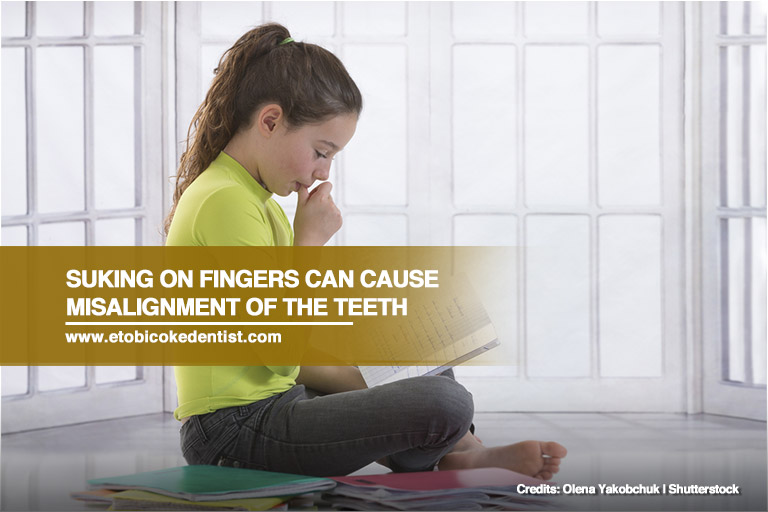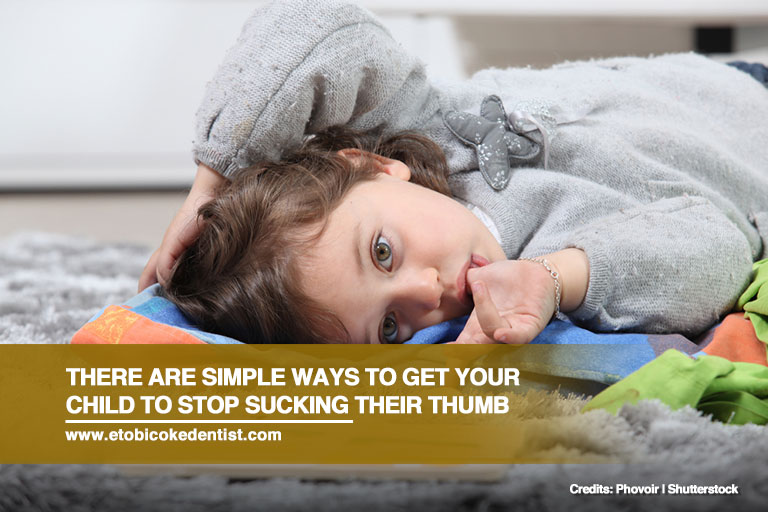Thumb sucking does not always result in teeth or other forms of oral damage. Passively holding the thumb in the mouth, for instance, is unlikely to cause harm. Aggressive thumb sucking with a great deal of movement, on the other hand, can damage primary teeth.
Thumb sucking can cause misalignment of your kid’s permanent teeth, as well as problems with the jaw, the contour of the mouth, and the roof of the mouth. Your child may also be exposed to germs, bacteria, and viruses as a result of thumb sucking
How Long Can Your Child Continue With This Behaviour?
Children quit sucking their thumbs on their own between the ages of 2 and 4. Thumb sucking that lasts longer than that can damage the alignment of your child’s permanent front teeth as well as the form of their mouth.
Discuss with your child’s doctor or dentist if you’re concerned about your child’s thumb sucking or if your child is older than 4 and still sucks their thumb. They might suggest therapy or tactics that can help your youngster stop the habit. Doctors may also advise allowing your child to continue with the behaviour until they are able to stop on their own.
What Are the Effects of Thumb Sucking?
Sucking may interfere with the healthy growth of the mouth and alignment of the teeth after permanent teeth have erupted. It can also lead to changes in the roof of the mouth.
Pacifiers have similar effects on the teeth as sucking fingers and thumbs, but this habit is easier to break.
Sucking intensity is a factor in determining whether or not tooth problems may occur. Toddlers who rest their thumbs passively on their lips have fewer difficulties than those who suckle their thumbs aggressively.
Thumb Sucking and Malocclusion

Thumb sucking for an extended period of time can result in malocclusion or misalignment of the upper and lower teeth. This can lead to the development of an open bite, which is when the front upper and lower teeth do not touch each other.
Excessive thumb sucking can also result in an overbite. Overbites occur when the front teeth overlap the bottom teeth, causing problems with the function of the front teeth. This can make chewing and biting foods difficult for your child.
Effects of Thumb Sucking on the Jaw and Facial Development
Children’s jaws and faces develop dramatically from birth to puberty. Sucking one’s thumb or sucking on a pacifier might affect the development of the orofacial complex, which includes the jaw, mouth muscles, face, and teeth. The severe sucking motion’s recurrent pressure causes the teeth to shift oddly which may damage the child’s overall facial structure.
Thumb-sucking can also have a negative impact on a child’s speech. This habit can cause the tongue to push forward over the teeth. Poor tongue coordination induced by the habit can often result in a lisp or trouble with certain sounds, such as S, Z, L, and R. It is critical for babies to practice making different sounds by forming their mouths and engaging their facial muscles. Infants and toddlers who suck their thumbs excessively or who rely on a pacifier miss out on critical opportunities to develop and practice key basic language abilities. Even though this is not a dental concern, it is worth mentioning while discussing the consequences of thumb sucking on oral health.
How to Stop Your Child’s Thumb Sucking Habit

Breaking this habit can be challenging, but here are a few simple things that you can do to keep your child from sucking their thumb:
- Positive Reinforcement – Positive reinforcement can go a long way. When your child isn’t thumb sucking, praise them or give small rewards, like extra time outside a trip to the park. You can also use a sticker chart to see your child’s progress. At first, you may need to give your child a sticker for every hour they go without sucking, then you can progress to daily rewards. When your child manages to make it past two weeks without sucking, you can celebrate.
- Chewable Jewelry – This is an excellent way to help a child stop sucking their thumb without them losing the joy they get from the oral stimulation. There is a wide variety of chewable jewelry in the market.
- Bad-Tasting Nail Polish – These types of nail polish were developed primarily to stop nail-biting. However, many people have found that these also help with thumb sucking. One downside, however, is that your child can get used to the taste. If this happens, you can switch brands.
- Thumb Covers – These come in either plastic or cloth. Plastic thumb covers are more expensive and can restrict hand movement. Children find it difficult to remove, which can make it a more effective alternative to cloth thumb covers. Cloth thumb covers, on the other hand, are less restrictive, which means that your child can easily use their hands when playing and doing other activities. However, they are easily removable and may not be as effective as the plastic variety.
- Talk – If your child is old enough, you can talk to them about the reason why thumb sucking is a bad habit. While talking alone doesn’t break the habit, it can help your child decide on their own to quit sucking their thumb.
Visit Your Dentist
Thumb sucking can have long-lasting effects. Fortunately, even the most severe malocclusions caused by thumb sucking can be corrected with orthodontic procedures once your child reaches a suitable age. Your dentist will recommend the finest treatment options for your children’s dental issues.
At Dr. Mark Rhody Dentistry, we take great care in providing dental services to children. While you are visiting our clinic for her dental check-ups or treatment, we do our best to make your child as comfortable as possible. We are here to help — whether it’s for a dental emergency or to stop your child’s thumb sucking habit.
To arrange an appointment, contact (416) 231-4281 and let us help you maintain your child’s oral health in good shape.
